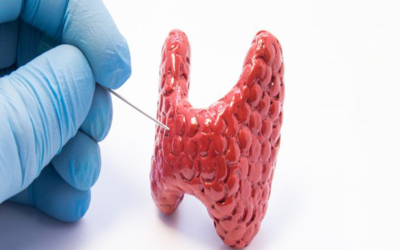The symptoms of thyroid disorders are barely discernible.
[the_ad id=”13371″]
Sometimes you may feel bloated, tired out, like you’re gaining weight fast; you may even feel like you’re experiencing hair loss. On the flip side, you may be feeling anxious, ‘hyper’ and have excessive sweating due to Thyroid Problems. These may be some of the more common symptoms of hypo- and hyperthyroidism. Most often such symptoms can also be confused with other conditions, like menopause, pregnancy, or depression. However, diagnosing and optimally treating thyroid disorders is vital for healthy living.
Hypothyroidism is when the thyroid gland functions less efficiently, and hyperthyroidism refers to an overactive thyroid gland. You know it is time to go to the doctor when the symptoms given below start to affect your daily life.
Know The Signs of Thyroid Problems
- Thyroid disease is more common among women than among men, and hypothyroidism occurs more frequently among women.
- Hypothyroidism has symptoms like lowered appetite and increased weight gain with a slower heart rate.
- Hyperthyroidism has reverse symptoms, like increased appetite and weight loss with a faster heartbeat.
- Both these disorders cause swelling of the neck if they progress without treatment.
Know that thyroid disorders are your body’s response to your own cells; you may want to check if thyroid disorders run in your family, as this determines the chances of you getting a thyroid disorder. A simple blood test can reveal if you have a thyroid disorder. Other symptoms of hypothyroidism are constipation, irregular menstruation, numbness, tingling in the fingers, and dry and brittle nails. On the other hand, hyperthyroidism is characterized by diarrhea, irregular menstruation, and vision problems.
Leaving thyroid untreated disorders leads to dire consequences, like higher cholesterol, increased risk of stroke and heart disease, and lowered levels of thyroid hormone, which can also result in a lowering of the temperature of the body.
Treatment for thyroid disorders is often in pill form. In hypothyroidism, the thyroid hormone (in pill form) is given; while in hyperthyroidism, anti-thyroid medication is given. However, your doctor is the best person to determine the ideal treatment course for you.
If you experience any of the above symptoms, visit your doctor. Remember, these symptoms are completely treatable!
Source:

